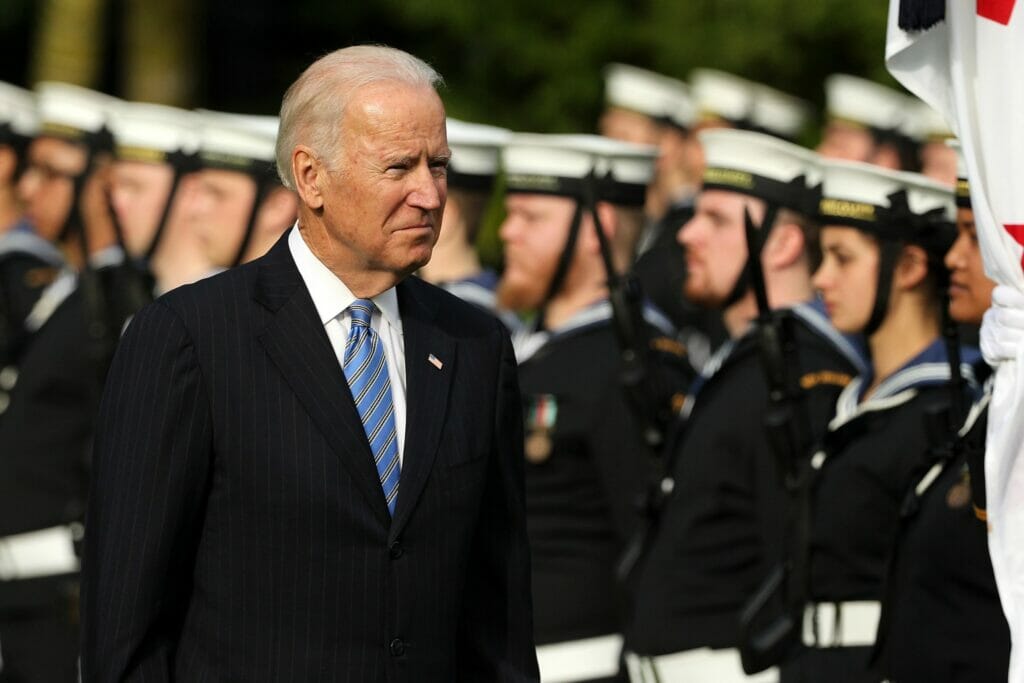Prospects for Civil-Military Relations During a Biden-Harris Administration
Speaker:
Gen. Vincent Brooks, Kori Schake, Peter Feaver
| Moderated by Jim Golby
Tuesday, December 1, 2020 | 5:00 pm CST | Zoom

Kori Schake is the director of foreign and defense policy studies at the American Enterprise Institute (AEI). Before joining AEI, Dr. Schake was the deputy director-general of the International Institute for Strategic Studies in London. She has had a distinguished career in government, working at the US State Department, the US Department of Defense, and the National Security Council at the White House. She has also taught at Stanford, West Point, Johns Hopkins University’s School of Advanced International Studies, National Defense University, and the University of Maryland. Dr. Schake is the author of five books, among them America vs the West: Can the Liberal World Order Be Preserved? (Penguin Random House Australia, Lowy Institute, 2018); Safe Passage: The Transition from British to American Hegemony (Harvard University Press, 2017); State of Disrepair: Fixing the Culture and Practices of the State Department (Hoover Institution Press, 2012); and Managing American Hegemony: Essays on Power in a Time of Dominance (Hoover Institution Press, 2009). She is also the coeditor, along with former Secretary of Defense Jim Mattis, of Warriors & Citizens: American Views of Our Military (Hoover Institution Press, 2016). Dr. Schake has been widely published in policy journals and the popular press, including in CNN.com, Foreign Affairs, Politico, The New York Times, The Wall Street Journal, and The Washington Post. She is a contributing writer at The Atlantic and War on the Rocks. Dr. Schake has a PhD and MA in government and politics from the University of Maryland, as well as an MPM from the University of Maryland School of Public Policy. Her BA in international relations is from Stanford University.
Peter D. Feaver (Ph.D., Harvard, 1990) is a Professor of Political Science and Public Policy at Duke University. He is Director of the Duke Program in American Grand Strategy. Feaver is author of Armed Servants: Agency, Oversight, and Civil-Military Relations (Harvard Press, 2003) and of Guarding the Guardians: Civilian Control of Nuclear Weapons in the United States (Cornell University Press, 1992). He is co-author: with Christopher Gelpi and Jason Reifler, of Paying the Human Costs of War (Princeton Press, 2009); with Susan Wasiolek and Anne Crossman, of Getting the Best Out of College (Ten Speed Press, 2008, 2nd edition 2012); and with Christopher Gelpi, of Choosing Your Battles: American Civil-Military Relations and the Use of Force (Princeton Press, 2004). He is co-editor, with Richard H. Kohn, of Soldiers and Civilians: The Civil-Military Gap and American National Security (MIT Press, 2001). He has published numerous other monographs, scholarly articles, book chapters, and policy pieces on grand strategy, American foreign policy, public opinion, nuclear proliferation, civil-military relations, and cybersecurity.
From June 2005 to July 2007, Feaver served as Special Advisor for Strategic Planning and Institutional Reform on the National Security Council Staff at the White House where his responsibilities included the national security strategy, regional strategy reviews, and other political-military issues. In 1993-94, Feaver served as Director for Defense Policy and Arms Control on the National Security Council at the White House where his responsibilities included the national security strategy review, counterproliferation policy, regional nuclear arms control, and other defense policy issues. He is an emeritus member of the Aspen Strategy Group, blogs at “Elephants in the Room” at ForeignPolicy.com, and is a Contributing Editor to Foreign Policy magazine.
Lt. Gen. David W. Barno, USA (Ret.) LTG Barno is a retired Army 3-star General, defense commentator, and national security analyst with over 35 years of government service. In his distinguished military career, he commanded at every level, culminating in theater command of the war in Afghanistan from 2003 to 2005. During his 19-month command in Afghanistan, Barno led 20,000 troops in the military transition to a light-footprint counter-insurgency mission and established the first U.S. operational headquarters in Kabul. As overall U.S. and coalition commander, he was respoinsible for a diverse political-military portfolio, including regional military efforts with neighboring nations and extensive coordination with the governments of Afghanistan and Pakistan, the United Nations, NATO’s International Security Assistance Force, the U.S. Department of State and USAID, and the senior military leaders of many surrounding nations and numerous allies. A career infantry officer, Barno served many of his early years in special operations forces with Army Ranger battalions to include combat in both the invasions of Grenada and Panama. He later commanded both a parachute infantry battalion and a Ranger battalion, and accumulated over 110 military parachute jumps . In later years, he served in a series of complex joint service assignments. In his final Army assisgnment, he supervised Army installations worldwide, overseeeing a global multi-national workforce of 78,000 and a budget of $13 billion. From 2006-2010, Barno served as the Director of the Near East South Asia Center for Strategic Studies at the National Defense University, traveling extensively across the broader Middle East, North Africa and South Asia. During the same period, he chaired the Department of Vetreran’s Affairs’ 2007-2009 Advisory Committee on Operation Iraqi Freedom and Operation Enduring Freedom Veterans and Families. Barno frequently serves as a lecturer on defense strategy and budget issues, leader development, ongoing conflicts, civil-military relations, and the changing shape of warfare. Since leaving government, he has testified before Congress on over a dozen occasions. Barno writes a monthly column for Foreign Policy.com that addresses a wide range of defense and security topics. Barno has appeared in a wide range of broadcast media, to include BBC, FOX News, the Charlie Rose Show, the PBS NewsHour, NPR’s Diane Rehm Show, C-Span, and others. He is currently Senior Advisor and Senior Fellow at the Center for a New American Security.
Jim Golby joined the Clements Center for National Security in July 2020 as a Senior Fellow and the Department of Government as a Lecturer. Jim is a United States Army strategist with twenty years in uniform, currently serving as a defense policy adviser at the United States Mission to NATO. His work focuses on civil-military relations, military strategy, domestic sources of foreign policy, and American national security policy. He is also the co-host of the Center for Strategic and International Studies’ “Thank You for Your Service” podcast, a non-resident senior fellow with the United States Studies Centre in Sydney, Australia, and a member of the editorial board for the inter-disciplinary journal, Armed Forces & Society. Jim previously served as a special adviser to the Vice President of the United States, as a special assistant to the Chairman of the Joint Chiefs of Staff, and as an assistant professor of American Politics, Policy, and Strategy at the US Military Academy at West Point. Before becoming an Army strategist, Jim commanded a security company in Iraq (2006-07) and led a scout platoon in combat in Iraq (2004-05). He is a former International Affairs Fellow with the Council on Foreign Relations (2016-17) and a Munich Young Leader (2017). He is currently working on two main research projects: a book project, with Dr. Peter Feaver, that examines the determinants of public confidence in the U.S. military and another project that explores how political polarization shapes American civil-military relations. Jim graduated with a BS in American Government from the United States Military Academy and was commissioned in the US Army in June 2001. He also holds a PhD in political science from Stanford University.





